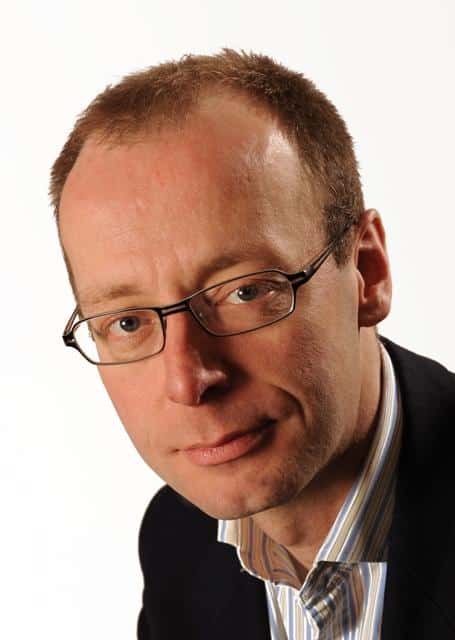Posted on: 17.02.2016
PR Pro David Crundwell chats with us about how to make it in the industry
Role: SVP Corporate Affairs & Communications Organisation: Thomson Reuters Twitter: @crundwell  David Crundwell was featured in the 2015 PR Week Global Power Book. As part of our #PRProSeries, Janie Emmerson, MD of Communications at Hanson Search, interviewed David to find out how he made it in the industry.
David Crundwell was featured in the 2015 PR Week Global Power Book. As part of our #PRProSeries, Janie Emmerson, MD of Communications at Hanson Search, interviewed David to find out how he made it in the industry.
Why did you get into communications?
I’m fascinated by the way large, complex companies live and breathe. There is no better place than to work in corporate affairs at the heart of these organisations. I’ve worked in the City, private equity and journalism, and corporate affairs is the perfect mix; bringing all those elements together to create one big challenge.
What personal attribute has most helped you succeed in your career?
There are three elements that people need to make a success of global communications. Those that you can learn, those that you can develop over time, and an additional factor. Some people call it EQ; some people call it emotional empathy. I would say that increasingly it is also cultural empathy. Everything that businesses do these days, almost without exception, is global. There’s a huge responsibility on people who work in corporate affairs to be able to understand and interpret what that means in practice to help the business perform.
Who would you say has been the most inspiring person you’ve worked with?
Tony Spalding. He was Head of Communications at GM in the UK, when I first moved to communications from journalism. He was extremely good at demonstrating that the most important thing for a senior leader in corporate communications to demonstrate on a day to day basis is being a calm, safe pair of hands. Tony was completely unflappable. To be around someone who is that calm, who thinks clearly, who is eloquent – it is incredibly inspiring. It doesn’t mean that with that unflappability people can’t be lively, interesting or funny the rest of the time, but when there is an issue, and everybody else is getting excited, you need someone who has the ability to remain totally calm.
What is the best piece of career advice you’ve been given?
Don’t think about your next job; think about your next but one. Think ahead. I encourage the people who work with me to sit in on projects that they’re interested in, that way they can learn more, faster. The desire to learn new things is vital to both career and personal development. It stops people stagnating. In terms of development and keeping people interested and actively engaged in their future, careers are not a linear path anymore. It’s a series of stepping stones.
In ten years’ time, what do you think will be the biggest change in the global communications industry?
I don’t think there is one big change – it’s a continuum. The most important way to develop your career is to think about how you can become more professionally versatile. It is also imperative that individuals become far more aware of the commercial imperative behind our roles. A lot is talked about the importance of reputation management, but that is just a very small part of the story. Fundamentally, our roles exist to help businesses sell more products, retain more customers and move the share price up. There are some fairly basic commercial issues that we contribute to, understanding those and helping the business move forward is really important too for both effectiveness and credibility.
What would you say are the three words that best describe you as a communicator?
Charming, calm, and cheerful. Others of course might choose different words.
Apart from your current role, what would be your dream role within communications?
I’m not sure about communications, but in the wider world I feel passionately about public healthcare, and removing healthcare inequalities. Maybe I could be Secretary of State for Health? Though, if you really pushed me on a dream role just in communications… perhaps Lego?

 Career Enquiry
Career Enquiry